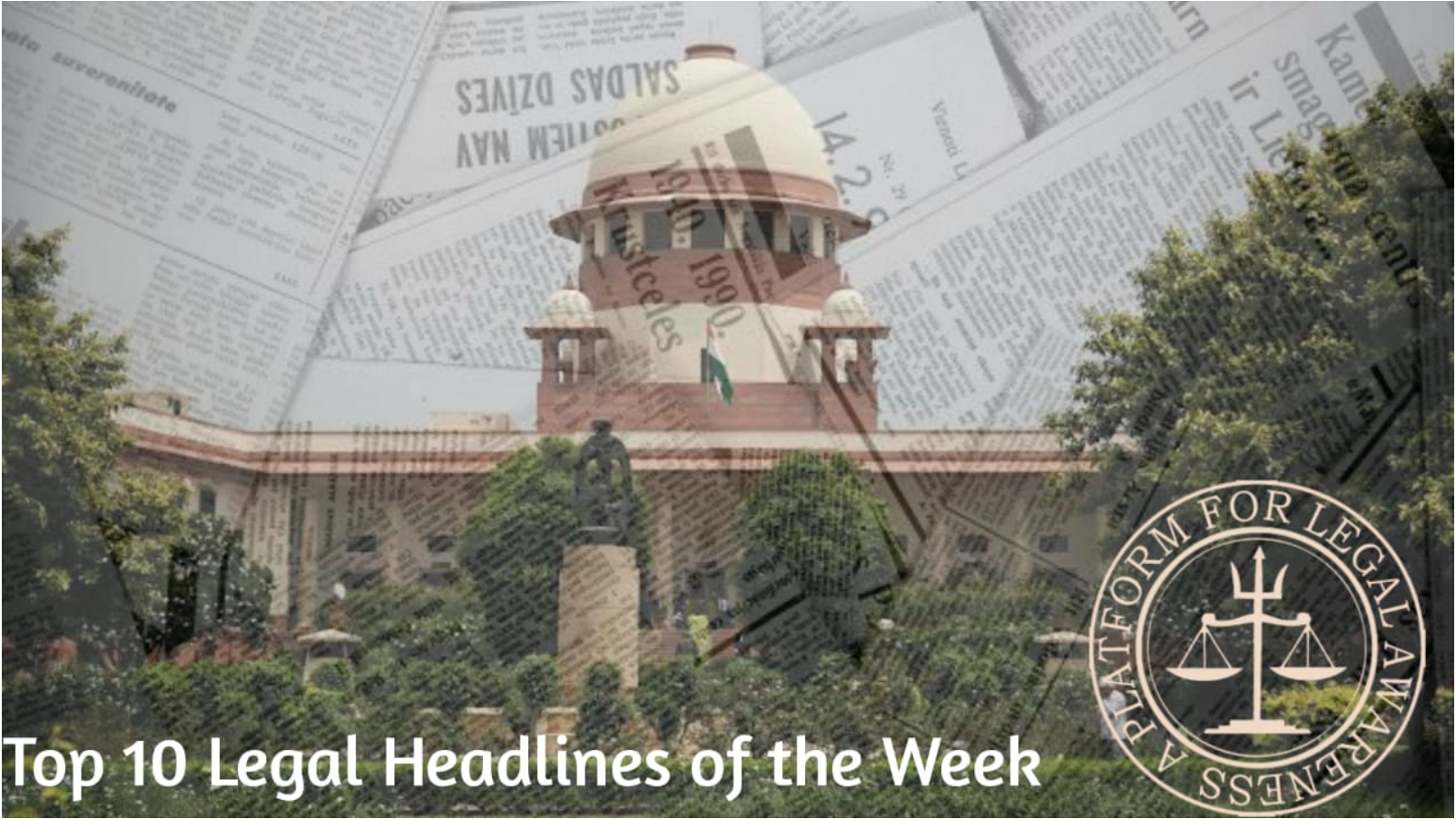1. Supreme Court Issues Notice on PIL for Better Disability Law Enforcement
The Supreme Court notified the Centre regarding a PIL seeking a more robust implementation of the Rights of Persons with Disabilities (RPWD) Act, 2016. Filed by Sanjay Jain, a law professor and disability rights advocate, the petition highlights deficiencies in the Act’s enforcement, impacting fundamental rights for disabled individuals. The PIL urges better awareness among civil officers and calls for effective measures, as some states have not yet established advisory boards or rules, undermining disability rights and equal opportunity guarantees under the Constitution.
2. Supreme Court Backs Kerala HC’s Ruling on Overqualified Candidates for LDC Post
The Supreme Court upheld the Kerala High Court’s decision to exclude candidates with higher qualifications, like a Diploma in Computer Applications, from eligibility for the Lower Division Clerk (LDC) post at the Kerala Water Authority. Criticising the Kerala Public Service Commission (KPSC) for inconsistently applying qualifications, the Court emphasised the need for transparent, fair selection processes. It urged KPSC to avoid arbitrary changes that affect candidates’ lives and aspirations and to adhere to the established qualifications.
3. Supreme Court Denies Bail to Father in Pune Porsche Crash Case
The Supreme Court has upheld the Bombay High Court’s decision to deny anticipatory bail to the father of a minor involved in a fatal Porsche crash in Pune. Accused of trying to switch his son’s blood sample at Sassoon Hospital to mislead the investigation, the father faces charges of forgery and conspiracy. Justices Sudhanshu Dhulia and Ahsanuddin Amanullah ruled that the law applies uniformly, regardless of social status, dismissing claims that media coverage biased the case. Pune Police now await the order to proceed with potential arrest.
4. Supreme Court Mandates Compensation for Sexual Assault Victims
The Supreme Court of India ruled that Sessions Courts must provide compensation for sexual assault and bodily harm victims, prioritising women and minors under Section 357-A of the CrPC. The directive in Saibaj Noor Mohammad Shaikh v. State of Maharashtra & Anr. mandates legal services authorities to facilitate timely financial assistance, reducing delays and supporting victim recovery. Justices BV Nagarathna and Pankaj Mithal underscored the importance of victim compensation, aiming to expedite justice and support for affected individuals.
5. Supreme Court Mandates Prior Sanction to Prosecute Public Servants in PMLA Cases
The Supreme Court ruled that prosecuting public servants under the Prevention of Money Laundering Act (PMLA) requires prior government sanction, per Section 197(1) of the CrPC. Upholding the Telangana High Court's decision, the Court clarified that CrPC provisions apply to PMLA cases unless specifically inconsistent. This decision affects cases involving IAS officers Bibhu Prasad Acharya and Adityanath Das, implicated in money laundering. The ruling ensures that CrPC's protections for public servants extend to PMLA cases despite the Enforcement Directorate's objections.
6. Supreme Court Rules Sexual Harassment Cases Can't Be Closed on Compromise
The Supreme Court set aside the Rajasthan High Court's decision to quash a sexual harassment case involving a teacher accused of molesting a 16-year-old student. The Court emphasised that such crimes, particularly against minors, are serious societal offences and cannot be settled through compromise. The Court criticised the High Court for not addressing the seriousness of the charges. It stressed that investigations should not be terminated simply due to a potential compromise between the parties.
7. Supreme Court Orders Kuki Group to Submit Tapes on Manipur CM’s Role in Violence
The Supreme Court directed the Kuki Organisation for Human Trust to present audio tapes as evidence to support claims that Manipur Chief Minister N. Biren Singh incited and organised violence in the state. The tapes, allegedly shared by a whistle-blower, reportedly show Singh's involvement in ethnic violence. The Court has ordered that the evidence be submitted in a sealed cover while also considering calls for a court-monitored investigation into the matter.
8. Supreme Court Stresses Timely Bail Decisions for Protecting Personal Liberty
The Supreme Court emphasised that delays in deciding bail applications violate citizens' fundamental rights. The Court criticised courts for postponing bail decisions for extended periods, highlighting that even a single day's delay adversely impacts personal liberty. This remark came while addressing a case where a man's bail application had been pending for over a year. The Court instructed the Allahabad High Court to resolve the matter immediately, within two weeks from November 11, 2024.
9. Supreme Court Condemns "Bulldozer Justice" in Property Demolitions
The Supreme Court criticised the practice of demolishing properties without due process, calling it "bulldozer justice." The Court stressed that such actions violate citizens' property rights and could lead to selective punishment. It directed that officials involved in unlawful demolitions should face disciplinary and criminal action. The Court also outlined clear safeguards for demolitions linked to road widening projects, urging strict adherence to legal procedures to ensure fairness and justice.
10. Supreme Court Orders Mandatory Accessibility Rules for Disabled People
The Supreme Court has directed the Union government to make the Rights of Persons with Disabilities (RPWD) Rules, 2017, mandatory to ensure proper accessibility for disabled individuals. It criticised the current framework for relying on voluntary guidelines instead of enforcing strict standards. The Court emphasised that the RPWD Act requires non-negotiable accessibility rules. It ordered the government to segregate mandatory provisions from guidelines and implement strict penalties for non-compliance, with a deadline of three months.

